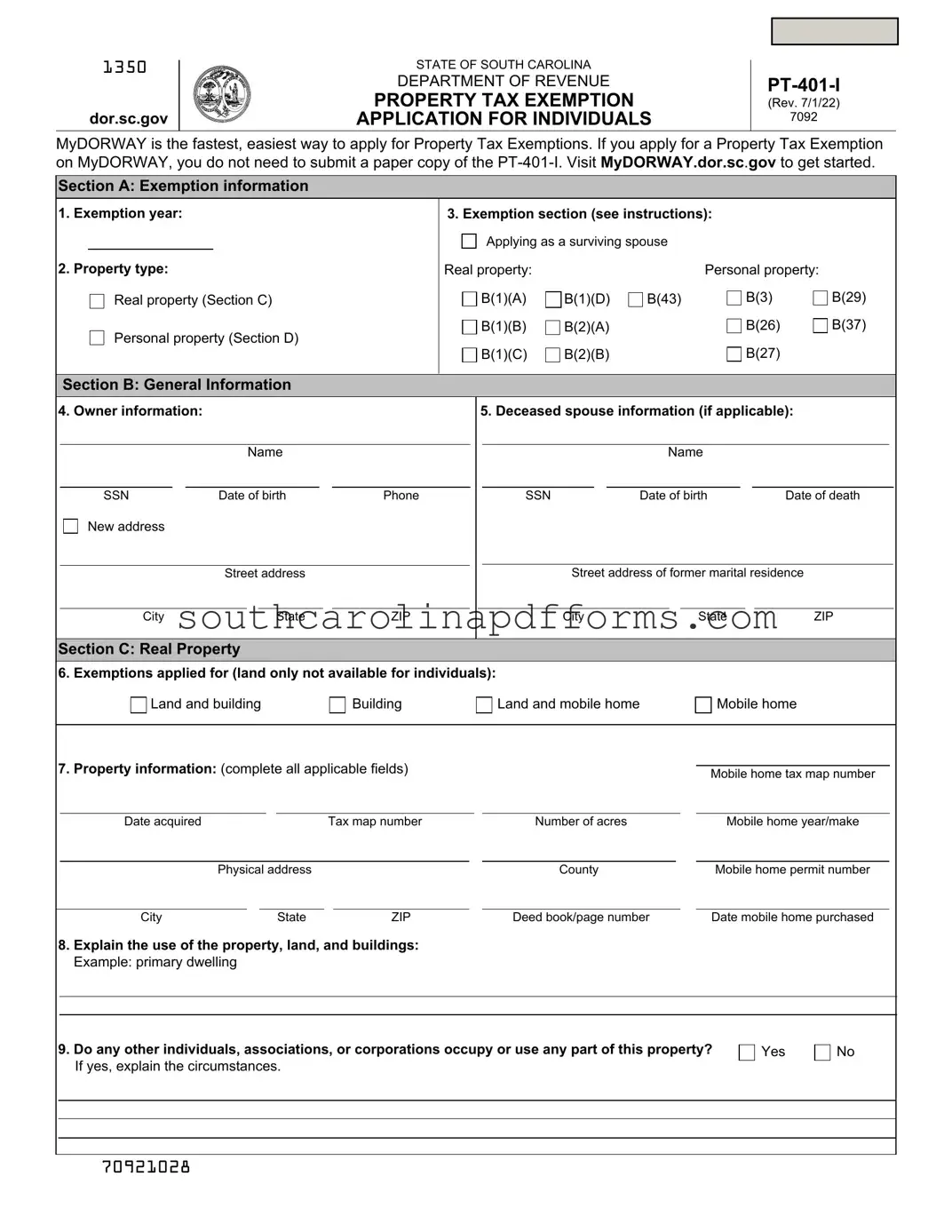The South Carolina PT-401 form serves as a crucial document for individuals and organizations seeking tax exemptions on various properties within the state. This application is designed to be filled out by the legal owner or an authorized agent, ensuring that all necessary information is accurately provided to avoid delays in processing. Key sections of the form require applicants to furnish details such as their legal name, address, and identification numbers, as well as specific information about the property in question, including its location, tax map number, and applicable exemptions under South Carolina law. The form accommodates a variety of property types, ranging from real estate to vehicles, and includes classifications for exemptions that pertain to educational institutions, charitable organizations, and veterans. Supporting documentation is essential; applicants must attach various legal and financial documents to substantiate their claims for exemption. The PT-401 form not only streamlines the application process but also delineates the criteria under which properties may qualify for tax relief, thus promoting transparency and compliance within the state’s taxation system.
